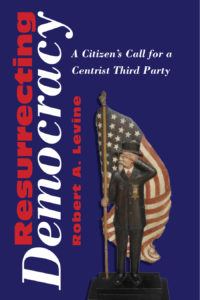 Is The Donald going to have to eat his words? When he started his economic battles with the rest of the world, particularly China, he made a statement that “trade wars are easy to win,” making it seem that starting these conflicts were no big deal. He didn’t want to scare his base who would suffer the most in a prolonged economic clash between the United States and China.
Is The Donald going to have to eat his words? When he started his economic battles with the rest of the world, particularly China, he made a statement that “trade wars are easy to win,” making it seem that starting these conflicts were no big deal. He didn’t want to scare his base who would suffer the most in a prolonged economic clash between the United States and China.
Now over a year has passed since the official onset of the trade war between the US and China. Trump initially imposed tariffs on imported aluminum and steel from all nations including China, then added tariffs on $60 billion of other imported Chinese goods. These included technology, mechanical products, appliances, and so forth. China responded by placing tariffs on US exports, primarily agricultural goods. Among these have been soy beans, grains, pork, wine, fruit. Also steel pipe and recycled aluminum. China especially targeted American farmers because they constituted a large part of Trump’s base and he would need their votes to be reelected.
And as negotiations have continued between China and the US, additional tariffs on imported goods have been instituted by both sides, ramping up the costs to each country and especially to consumers. To ease the effect of tariffs on farmers in rural states, Trump has handed them billions of dollars in subsidies to tide them over until they can export their products to China again. This is in spite of the budget deficits climbing out of sight and the national debt expanding by trillions. (One has to remember that Trump in campaign mode promised to lower the budget deficits and national debt.) Now it appears that more subsidies will be necessary to help the farmers.
What Trump doesn’t seem to understand is that the Chinese will be able to import agricultural products from other nations, particularly Brazil and Latin American countries, replacing US output. And once the trade war is over, the Chinese may not change their pattern of importing and may stick with their more reliable exporters who may in fact be cheaper. The American farmers may lose their Chinese market permanently because of Trump’s easy trade war. And our farmers are not really happy about being subsidized. They want their markets and want to get back to work farming.
The big sticking point in trade negotiations between the two countries is the Chinese government’s use of subsidies to businesses deemed important to their future economy. This is the way the Chinese government has always advanced their economy, stealing technology from the US and other nations then starting their own companies to produce the same goods. They appear to have been willing to cease intellectual theft, but not centrally planned state subsidies to businesses. The market doesn’t determine the winners and losers in the Chinese economy. The government does and supports what they see as vital industries with subsidies. And the government backed off on previous agreements the negotiators had made and refused to put any agreements into law.
One of Trump’s major mistakes was trying to negotiate with China on a one to one basis. If he had included allies in these negotiations, like the EU, England, Canada, Japan, and perhaps Latin America, he could have put much more pressure on China and forced them to make changes in their economy they were loath to make. But Trump said that trade wars were easy to win and now has screwed up the American economy and the public.
So instead of a deal being reached between the two economic giants, the conflict has been getting steadily worse. And the future possibility of an agreement appears bleak at this point. The Chinese economy will certainly be damaged by these tariffs, but so will the American consumers who will have to pay more for most products. And some American companies who have used China to produce parts for their products, like Apple and the automobile makers, will find themselves really hurting. All because of Trump’s easy trade war, which turned out not to be so easy to win. Trump has also said that he doesn’t like losers. Well, he certainly is a loser on this one.
Resurrecting Democracy
www.robertlevinebooks.com
Political junkie, Vietnam vet, neurologist- three books on aging and dementia. Book on health care reform in 2009- Shock Therapy for the American Health Care System. Book on the need for a centrist third party- Resurrecting Democracy- A Citizen’s Call for a Centrist Third Party published in 2011. Aging Wisely, published in August 2014 by Rowman and Littlefield. Latest book- The Uninformed Voter published May 2020
















